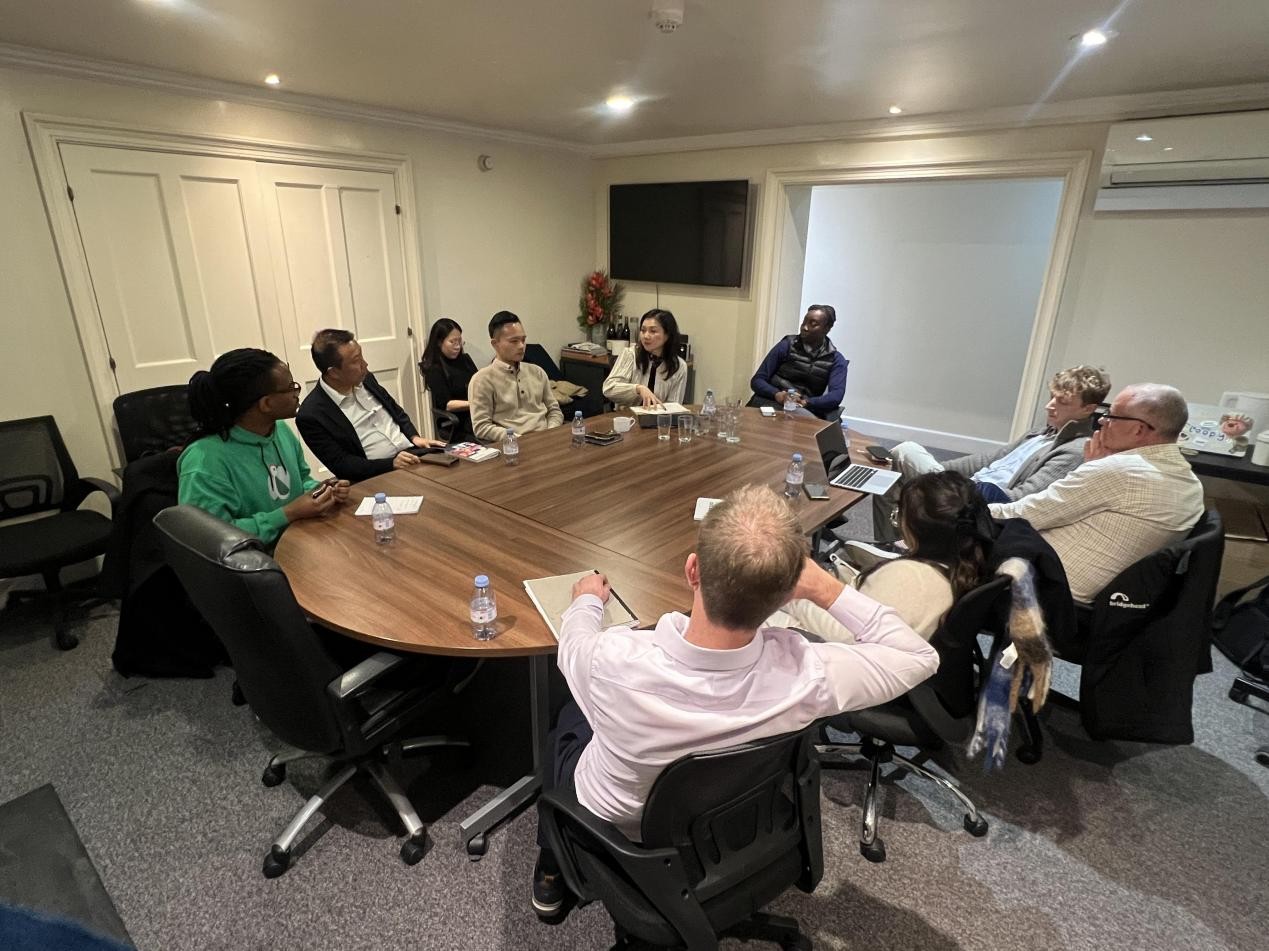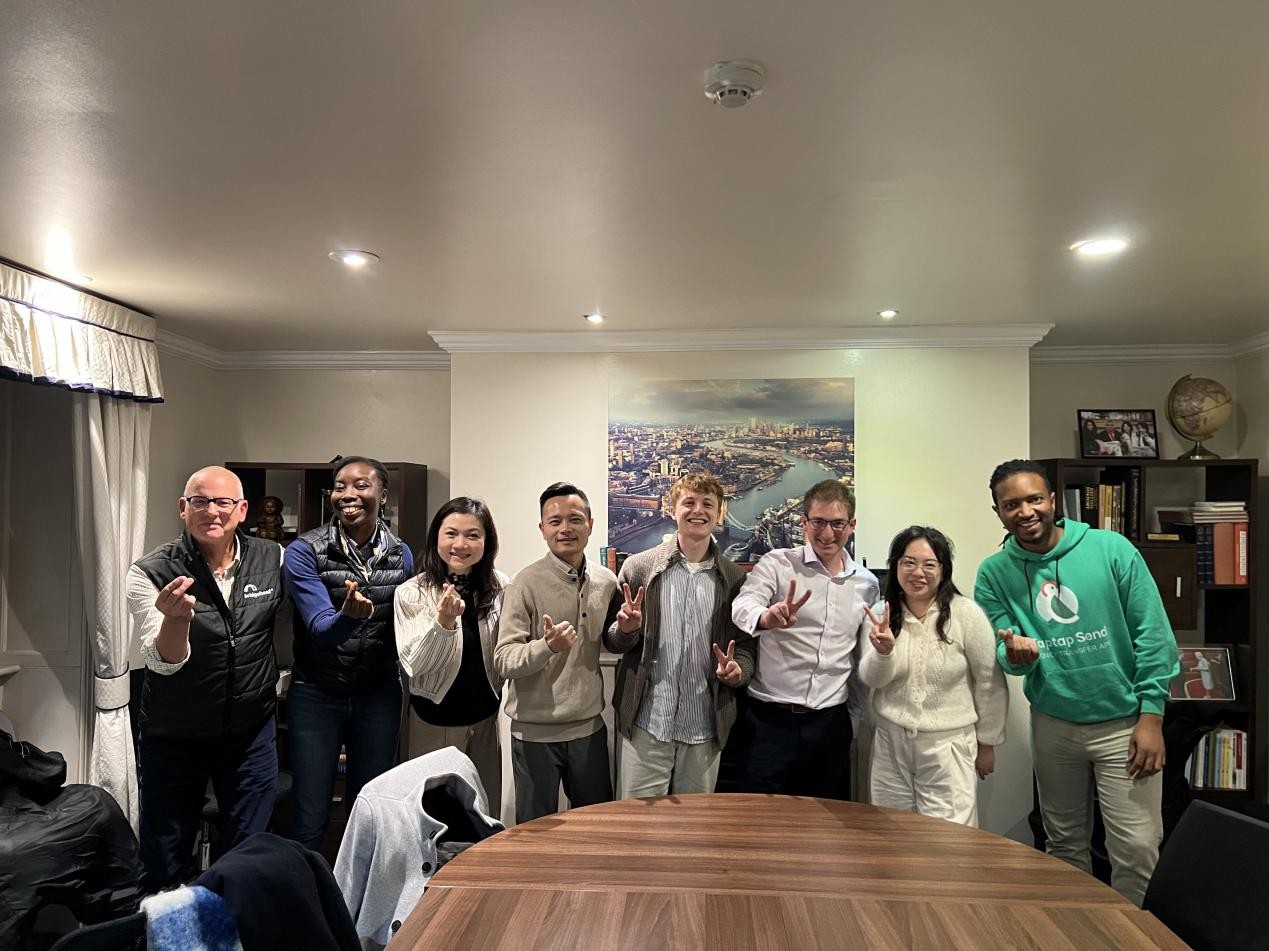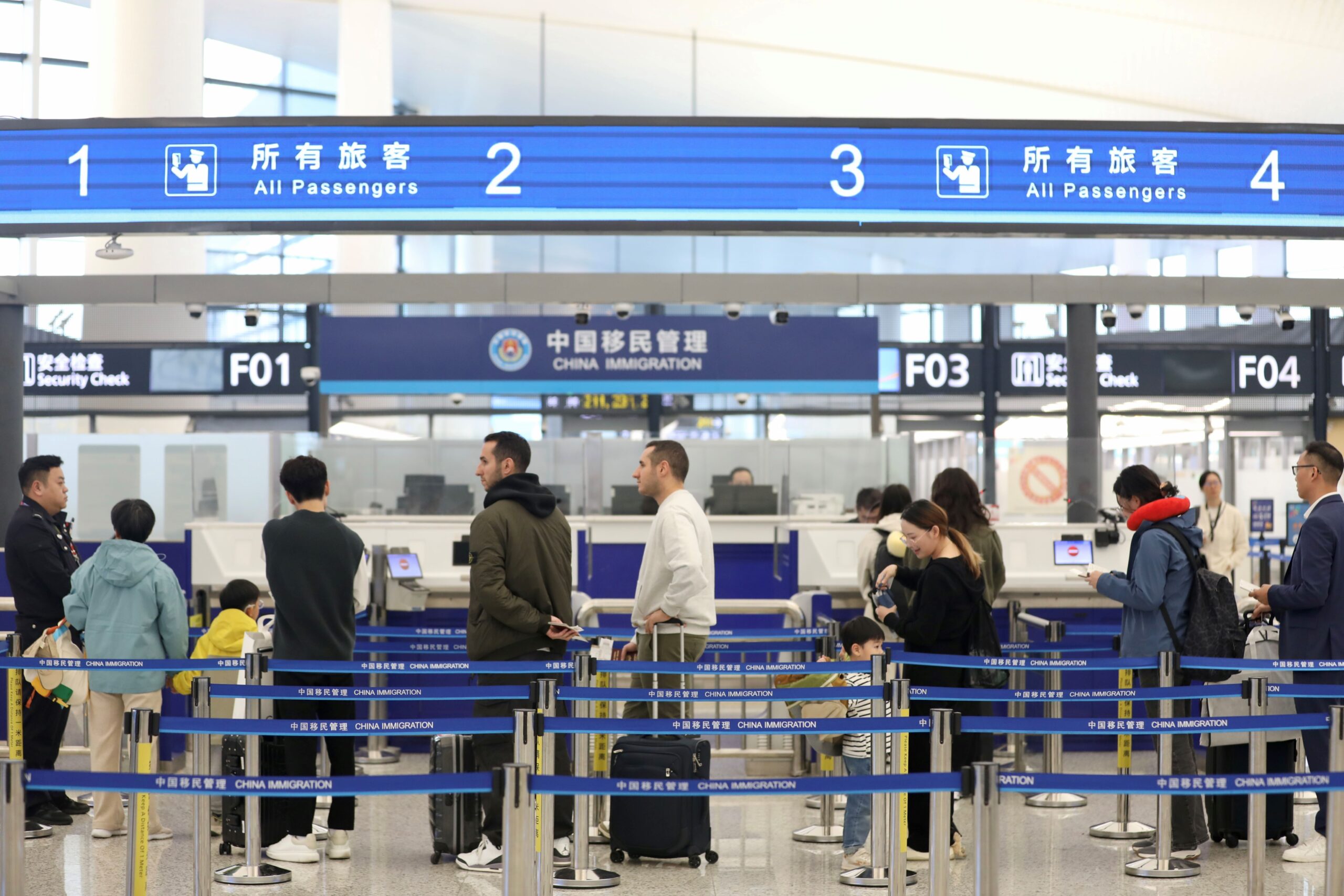After a nine-day visit to China, the UK Innovation and Investment Delegation returned to London and shared their experiences in an exclusive interview with China Minutes, highlighting a shift in China-UK innovation exchanges from “observation and dialogue” to “collaboration and implementation.”
New Collaborations Take Shape
Members of the delegation said the trip not only deepened their understanding of China’s innovation ecosystem but also led to a series of concrete partnerships and follow-up projects.
During the visit, the delegation toured Shanghai, Hangzhou, and Hefei, focusing on cutting-edge sectors such as artificial intelligence, medical technology, and the digital economy. Members widely described the trip as “highly valuable,” noting that it confirmed China’s market potential while directly facilitating new partnerships.
Before the trip, Jai James McIntosh, Head of Partnerships at Bridgehead International Agency, revealed that the company was considering relocating its Sydney branch to Asia and was weighing options between Shanghai and Hong Kong. After the visit, he made a firm decision: Bridgehead will establish a permanent office in Shanghai, with preparations starting in early December this year.
“We had initially considered Hong Kong, but Shanghai’s innovation ecosystem proved to be more dynamic and collaborative,” McIntosh said, “From incubators to local governments, everyone showed remarkable openness. The city’s innovative atmosphere and industrial clusters have opened up a market full of potential.”
Bridgehead International Agency has since signed cooperation agreements with several Chinese partners and plans to advance concrete projects in the coming months. Some companies also forged long-term ties with government agencies and incubators in Shanghai and Hangzhou, including Plug and Play, Invest Shanghai, and Zhangjiang Pharma Valley, to explore collaborations in AI, medical technology, and digital innovation.
Delegates agreed that the visit brought them new business networks and policy insights. As Nzube Ufodike, co-founder of Crown Castê, remarked: “We didn’t just learn about the market, we found our way into it.”
A New Perspective on China
When asked about their impressions of China’s innovation environment, several British entrepreneurs highlighted two words: “speed” and “system.”
Paul Hercock, CEO of a UK-based medical device compliance consultancy, said the medical innovation system at Zhangjiang Pharma Valley “compresses R&D cycles that usually take years into just a few months.” The seamless integration of research, clinical practice, and commercialisation, he added, was “truly impressive.”
Delegates noted that China is taking a global lead in infrastructure investment and policy coordination across sectors such as AI, life sciences, and advanced manufacturing. Many also agreed that the old Western stereotype of “Made in China equals low quality” has been completely overturned. “What we see now is an innovation-driven economy,” said Hercock, “Innovation in China isn’t just about products, it’s a systematic way of thinking, supported by education, capital, and even urban planning.”
Nzube Ufodike said the trip reshaped his perception of China’s innovation culture and inspired new directions for future cooperation. He was particularly impressed by Hangzhou’s Impression West Lake performance, seeing it as a symbol of China’s growing potential in cultural and tourism projects. “This visit showed me not only China’s strengths in infrastructure, tech innovation, and connectivity, but also its relentless ambition for progress,” he said. “In cities like Shanghai, Beijing, and Guangzhou, I sensed an energy where everyone is pushing forward, it’s truly inspiring.”

As an experienced entrepreneur in finance and venture capital, Nzube is now planning to bring his financial education podcast platform, Crown Castê, into the Chinese market and explore collaborations with Chinese fintech companies. He believes China’s mature incubator system, government support, and digital distribution infrastructure provide fertile ground for SMEs to grow and internationalize.
“When a company wants to go global from China, finding the right financial partner is essential, that’s where we hope to contribute.” He added that several cooperation ideas have already emerged from the trip, including discussions with Chinese payment and financial service institutions on how media and knowledge sharing can strengthen China-UK innovation connectivity. “I believe my next stage of growth will come from working with Chinese partners,” Nzube said with a smile. “This journey marks a new beginning.”
At the same time, delegation members also recognized the challenges of entering the Chinese market, from cultural understanding to regional differences and communication styles.
Paul McIntosh, CEO of Bridgehead International Agency, noted that many Chinese companies expanding into Europe often prioritize Germany, France, or Spain, with the UK seen as a “second or third choice.” He emphasized that the UK needs to improve its international narrative to better showcase its leadership in innovation.
Cautious Optimism About the Future
When discussing the future of China-UK relations, most delegates expressed cautious optimism. While global political uncertainty remains, they believe business and non-governmental collaborations are becoming an increasingly stabilizing force in bilateral relations.
Looking ahead, many delegates said they would prefer to deepen existing ties in Shanghai and Hangzhou rather than expand their visits to new destinations. Some of them also suggested exploring opportunities in the Guangdong-Hong Kong-Macao Greater Bay Area to compare regional innovation ecosystems and policies.
According to Xiaoke Li, Regional Director for Greater China at International Management Answers (IMA), the visit mechanism is expected to become a regular exchange platform. Future programs will move “from exploration to implementation,” continuously promoting integration within the China-UK innovation ecosystem. Several delegates also expressed their hope to revisit China annually to build on existing cooperation and push for deeper collaboration.
Qiang Li, General Manager of China Minutes, echoed this sentiment, calling for more British enterprises from diverse sectors to participate in such exchanges and “expand the new horizons of China-UK cooperation together.”
Delegates agreed that what they witnessed on this trip was not only market opportunity but a vibrant ecosystem of innovation and collaboration.
“No matter how the external environment changes, the potential for China-UK cooperation in technology and innovation remains immense,” summarized Adizah Tejani, a technology and venture capital leader. “The key lies in turning that potential into action.”
Written by Tianai Lu and Haoxuezi Tian. If you like this article, why not read: She Writes, A UK-China Dialogue on Women’s Stories











